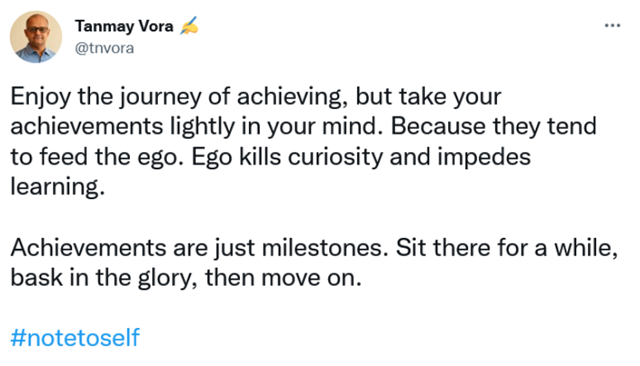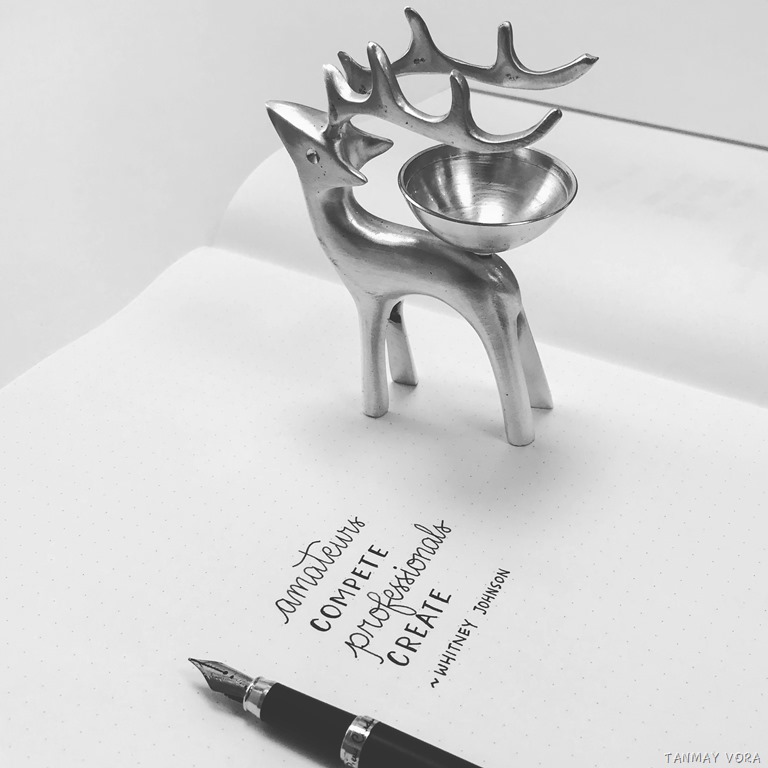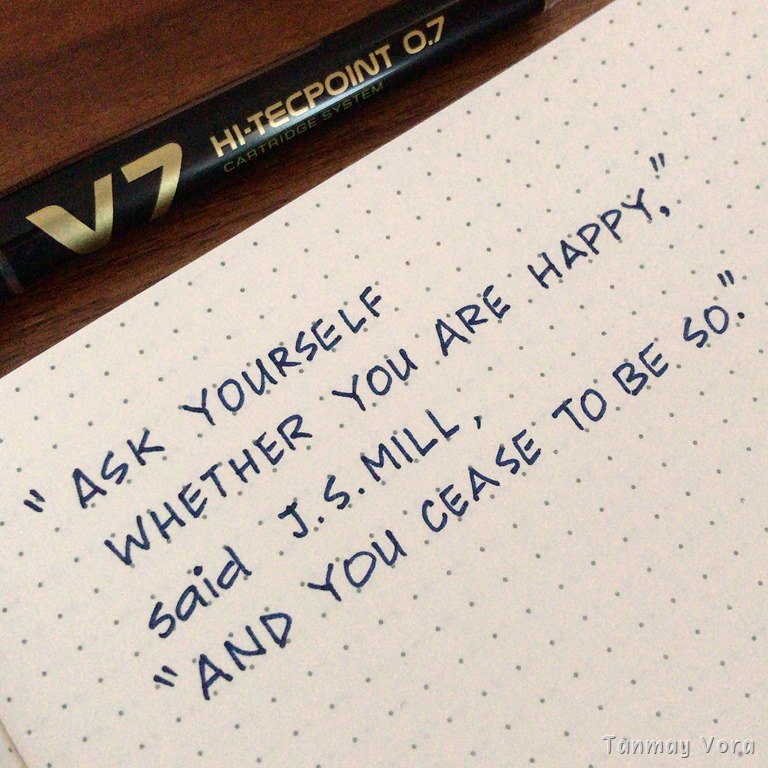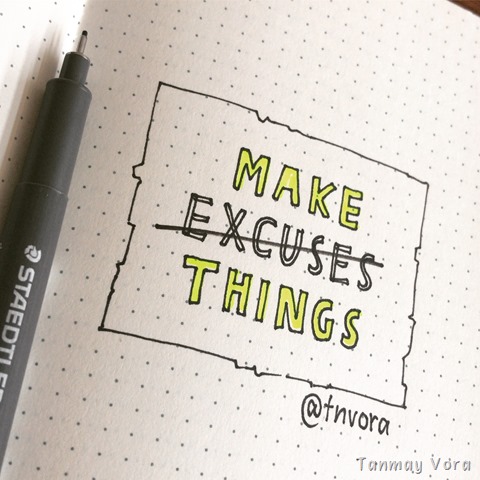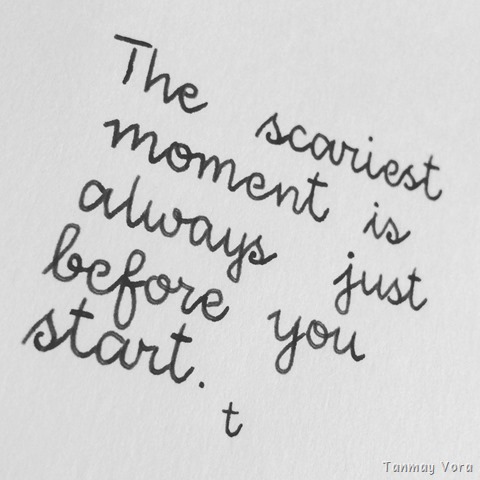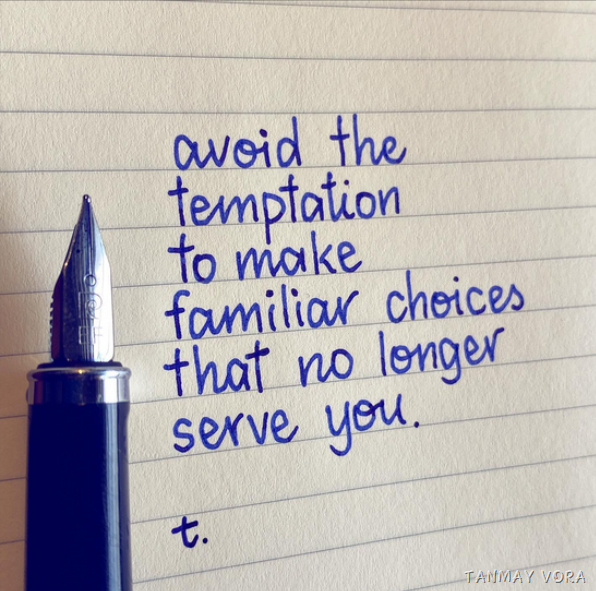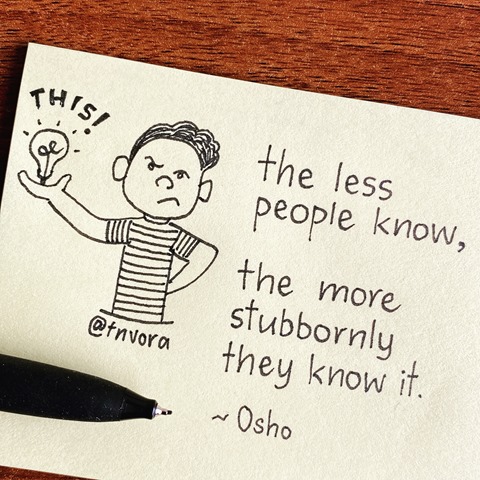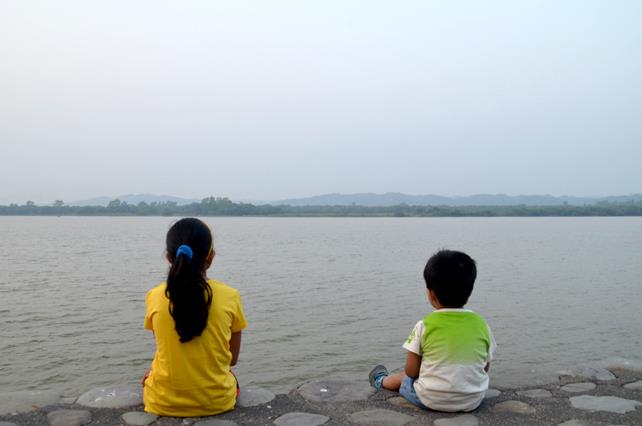I played cricket after a really long time through participation in my neighborhood’s premier league. The opponent teams had players far younger than me with prowess to throw high-speed deliveries. The first couple of matches were really hard. I could barely guard the wicket for a ball or two before getting bowled out.
Third match was a turn-around. Before the match, I affirmed myself with the following:
You get bowled out, not by an opponent’s speed of bowling, but by your internal anxiety to perform. Let it go, calm down, watch the ball carefully and play it according to it’s merit. Defend good deliveries (read tough times) and wait for the loose ones (read opportunities) to take your chances. Let go of your need to show your performance and score runs. Focus instead on each ball, it’s trajectory, pitching and length before doing justice to it. Score can just be an outcome of your ability to enjoy the game.
In that match, I hit five boundaries and everyone around was amazed. The big lesson for me is: It’s always about conquering ourselves first before we can conquer anything in the outer world.
Seneca rightly said,
“A rational soul is stronger than any kind of fortune – from its own share, it guides its affairs here or there, and is itself the cause of a happy or miserable life.”
Ability to stitch yourself together when situations tear you apart is a life skill that no one teaches. We have to do it ourselves. Strengthening the soul is the work of our life.
We are in semi-finals as I write this. Outcome will not matter knowing that I crossed a few inner boundaries!
